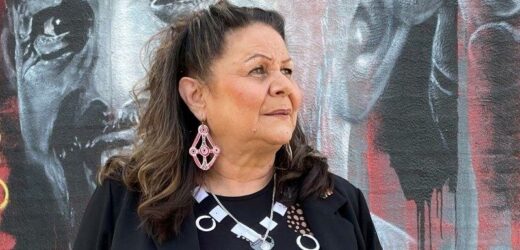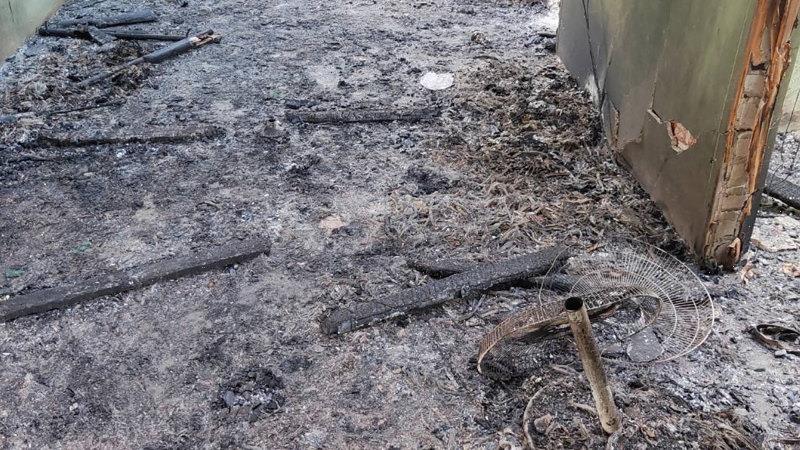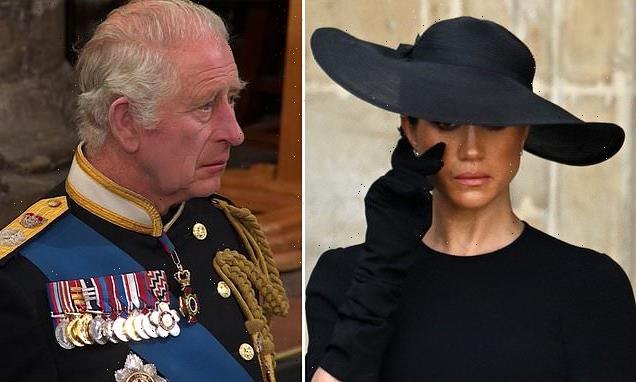On the weekend I was speechless when I learnt of plans to rename Maroondah Hospital after Queen Elizabeth II.
For decades I’ve stood on the shoulders of giants and have fought hard to advocate for Aboriginal and Torres Strait Islander people in Victoria alongside staunch and powerful leaders.
Jill Gallagher, chief executive of the Victorian Aboriginal Community Controlled Organisation.
During my time as Treaty Advancement Commissioner and working in partnership with Premier Daniel Andrews, I believed we made some positive and significant steps forward.
And in recent years the First Peoples’ Assembly of Victoria and Yoorrook Justice Commission have done incredible work in the fight for truth and justice for the community.
So it should be of no surprise that the decision to rename Maroondah Hospital has left me and many others feeling disappointed and confused.
As I was trying to grapple with the impact of the decision, I remembered a recent trip I had to New Zealand.
A Maori cultural group welcomes Australian tourists into Auckland after borders were reopened in April.Credit:Getty
I had stepped off the plane and walked into the airport. I was shocked by what I saw.
First, I was hit with feelings of joy and happiness.
The culture – that beautiful Māori culture was everywhere. Photos, artwork, paintings, music, signage in the Māori language. To see an Indigenous culture so prominent made me so proud.
Then I was hit with another feeling. Sadness, emptiness, disappointment.
Disappointment in the fact that there is barely a skerrick of Aboriginal culture on show at places such as Australian airports.
Seeing this display of Indigenous culture at New Zealand airport really brought it all home.
Aboriginal culture is near invisible in Australia.
We as a people are nearly invisible.
We have been fighting for recognition since colonisation began when the first British ships swept onto our shores.
The beginnings of colonisation were brutal and rapid, and the impacts continue to be felt today. Our people were treated as part of the fauna – and were not recognised as citizens of Australia until the 1967 referendum.
They were rounded up like cattle and put on missions and reserves. Children taken from the arms of their mothers and fathers. Families torn apart – which continues to this day.
The introduction of new illnesses and diseases.
Massacres.
These brutal acts devastated our culture and took away our identities as a people.
These brutal acts continue to have a major impact on the health and wellbeing of Aboriginal people.
Make no mistake our community are still doing it tough. Our people are in a constant state of mourning. This morning a cheeky journalist asked me if the Aboriginal flag was flying at half-mast for the Queen. I told them that our flag is always flying at half-mast.
This year alone we’ve had three Aboriginal deaths in custody – two of those in the last five weeks. There have been more than 500 Aboriginal deaths in custody since the 1991 royal commission.
We have lost a number of our much-loved Elders and leaders.
Then there is the intergenerational trauma, higher rates of mental illness, higher rates of chronic disease, institutionalised racism, and barriers to access in health and aged care services.
But Aboriginal leaders and advocates continue to fight hard for our people. For over 200 years our people have fought tooth and nail to restore our identity, our dignity, and our way of life.
It’s been a long and painstaking process. In 1933 William Cooper set up the Australian Aborigines League – one of our earliest advocacy organisations. The League fought for our recognition. The league fought for that visibility – visibility in our own country. Nearly a century later that fight continues.
The premier’s decision to rename the Maroondah Hospital after Queen Elizabeth II indicates that we still have a long, long way to go.
This is the man – the leader of our state – who did incredible work and showed great leadership by putting Treaty on the table. If he and his advisers do not understand why the name change is an issue – then we are in big trouble.
Maroondah is a Woiwurrung word meaning leaf, which symbolises Maroondah’s green environment.
To have things named in Aboriginal language gives us a sense of pride for ourselves and as a people.
Replacing our word ‘Maroondah’ with the name of a former British leader is just so hurtful for our people. It is yet another example of the ongoing impacts of colonisation.
It is another example of our culture being erased. It is a big step backwards.
The other big disappointment is the lack of consultation that came with the decision.
I am not disrespecting the Queen – it is not about the Queen. It is about this government disrespecting Aboriginal and Torres Strait Islander people with this name change.
I have heard talk of potential plans to build new hospitals in the west – plans for one in Melton for example. If the premier wants to honour the Queen – please, by all means, name the new Melton hospital after Queen Elizabeth II.
I respectfully request the premier to please reconsider the decision. Please take some time to consult with a delegation of Aboriginal leaders with a view for reconsidering.
We need to be moving forward – not backwards. We need to see more of our culture – not less.
I still hold out hope that one day I will see rich, vibrant, powerful Aboriginal culture, art and language on display right across the country. I also hope that it happens in my lifetime.
Aboriginal language and cultures need to be visible in a modern Australia.
Aboriginal people need to be visible in a modern Australia.
Most Viewed in National
From our partners
Source: Read Full Article




